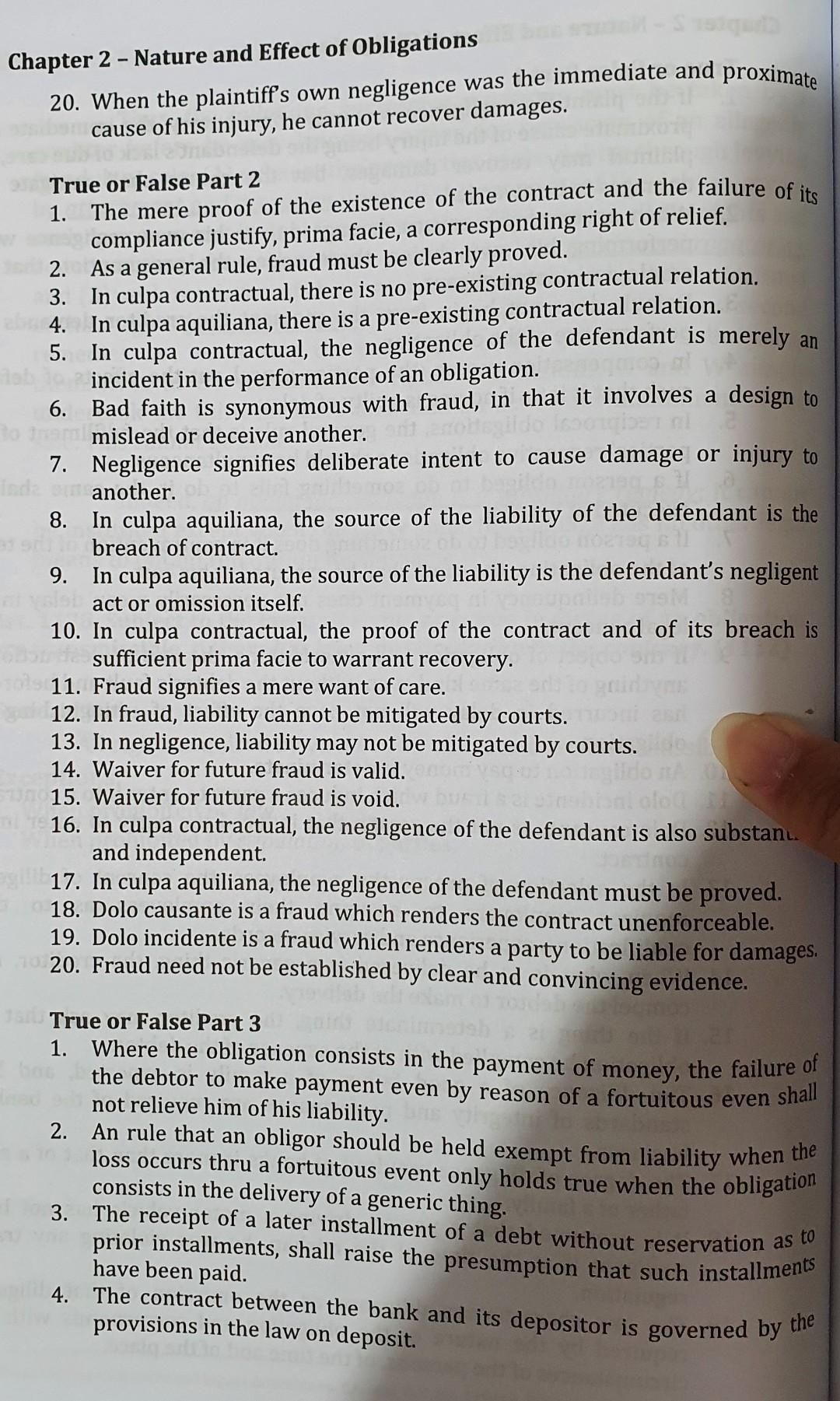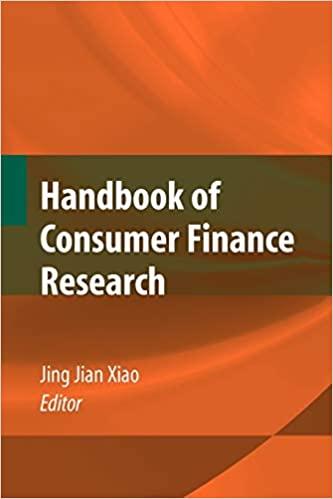Answered step by step
Verified Expert Solution
Question
1 Approved Answer
LAW SUBJECT- NATURE AND EFFECTS OF OBLIGATION TRUE OR FALSE (20-4) Chapter 2 - Nature and Effect of Obligations 20. When the plaintiff's own negligence
LAW SUBJECT- NATURE AND EFFECTS OF OBLIGATION TRUE OR FALSE (20-4)

Chapter 2 - Nature and Effect of Obligations 20. When the plaintiff's own negligence was the immediate and proximate cause of his injury, he cannot recover damages. True or False Part 2 1. The mere proof of the existence of the contract and the failure of its compliance justify, prima facie, a corresponding right of relief. 2. As a general rule, fraud must be clearly proved. 3. In culpa contractual, there is no pre-existing contractual relation. 4. In culpa aquiliana, there is a pre-existing contractual relation. 5. In culpa contractual, the negligence of the defendant is merely an incident in the performance of an obligation. 6. Bad faith is synonymous with fraud, in that it involves a design to mislead or deceive another. 7. Negligence signifies deliberate intent to cause damage or injury to another. 8. In culpa aquiliana, the source of the liability of the defendant is the breach of contract. 9. In culpa aquiliana, the source of the liability is the defendant's negligent act or omission itself. 10. In culpa contractual, the proof of the contract and of its breach is sufficient prima facie to warrant recovery. 11. Fraud signifies a mere want of care. 12. In fraud, liability cannot be mitigated by courts. 13. In negligence, liability may not be mitigated by courts. 14. Waiver for future fraud is valid. 15. Waiver for future fraud is void. 16. In culpa contractual, the negligence of the defendant is also substan. and independent. 17. In culpa aquiliana, the negligence of the defendant must be proved. 18. Dolo causante is a fraud which renders the contract unenforceable. 19. Dolo incidente is a fraud which renders a party to be liable for damages. 120. Fraud need not be established by clear and convincing evidence. True or False Part 3 1. Where the obligation consists in the payment of money, the failure of the debtor to make payment even by reason of a fortuitous even shall not relieve him of his liability. 2. An rule that an obligor should be held exempt from liability when the loss occurs thru a fortuitous event only holds true when the obligation consists in the delivery of a generic thing. 3. The receipt of a later installment of a debt without reservation as to prior installments, shall raise the presumption that such installments have been paid. 4. The contract between the bank and its depositor is governed by the provisions in the law on deposit
Step by Step Solution
There are 3 Steps involved in it
Step: 1

Get Instant Access to Expert-Tailored Solutions
See step-by-step solutions with expert insights and AI powered tools for academic success
Step: 2

Step: 3

Ace Your Homework with AI
Get the answers you need in no time with our AI-driven, step-by-step assistance
Get Started


